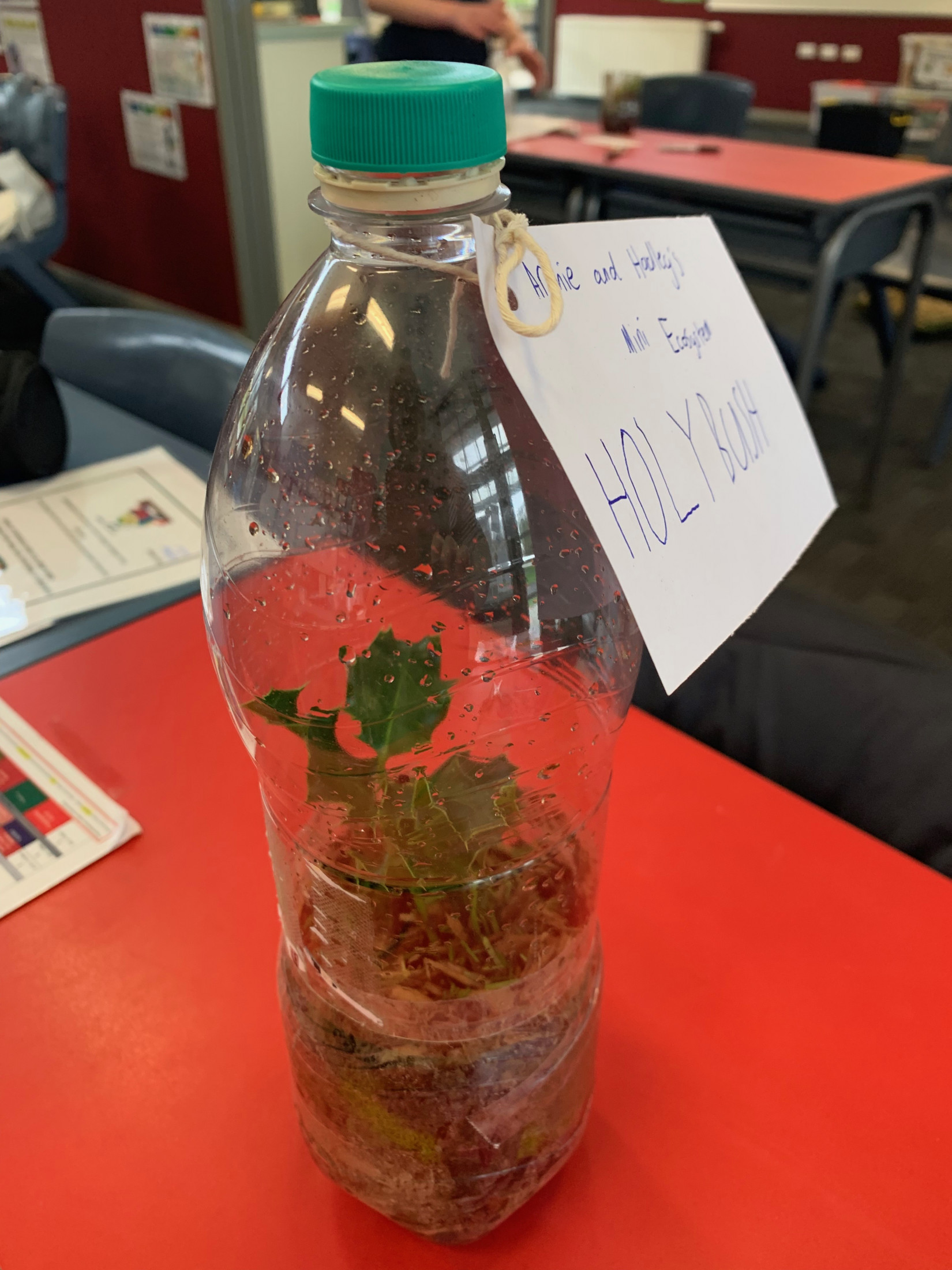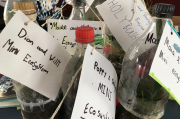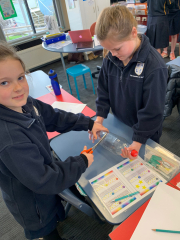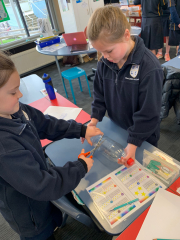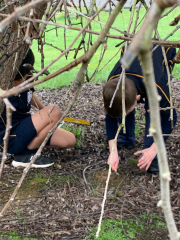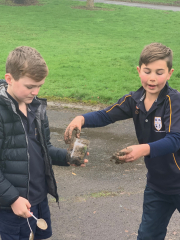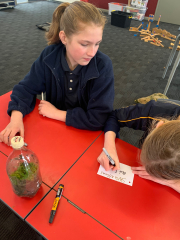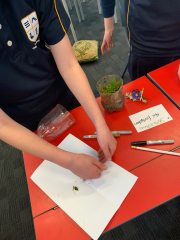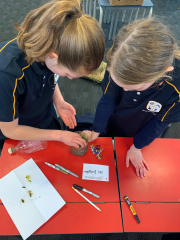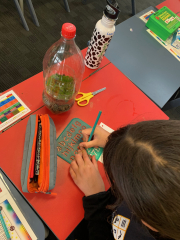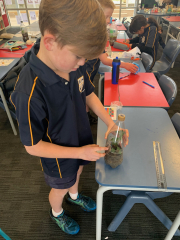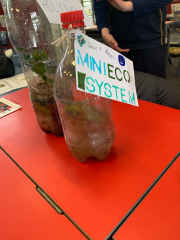Mini EcoSystems
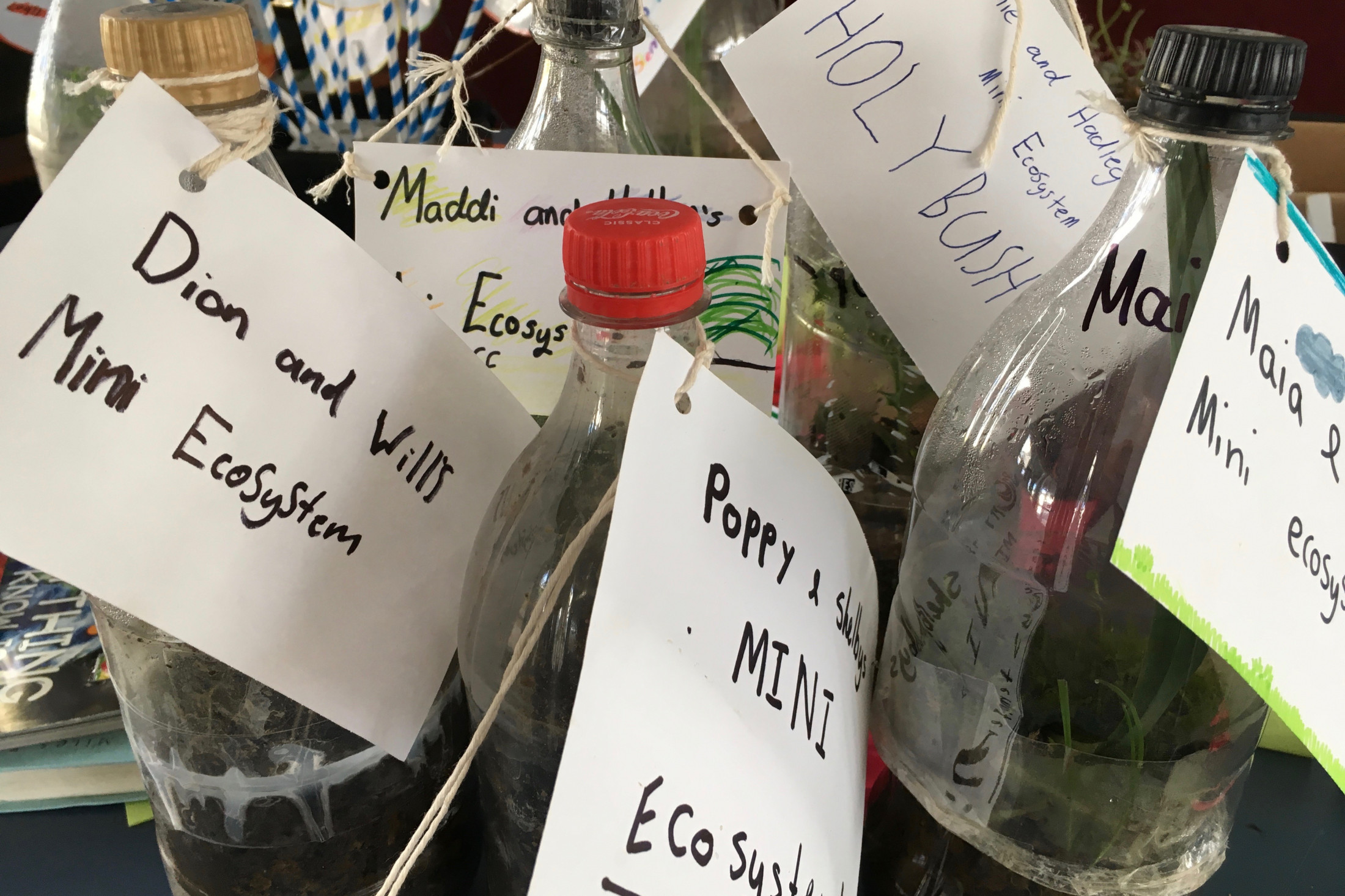
Room 19 have put plastic drink bottles to good use!
To help the pupils increase observational skills and vocabulary in Science, they buddied up with a partner and created these mini-ecosystems by recycling plastic fizzy drink bottles.
An additional part of the learning was converting inches to centimetres, to determine how much soil, stones and mulch they needed to create their environment for the plants and animals.
Pupils have learned that an ecosystem is a group of plants and animals that all work together in their environment. The insects produce carbon dioxide when they eat the leaves and mulch - the plants then turn into energy which creates oxygen so the insects can breathe. The water cycles through the soil into the plant, out into the air where it condenses on the bottle and rains down back onto the soil.
Pupils make regular observations and record them in their books. When pupils compared the various mini-ecosystems in class, they were able to identify that some bottles didn’t show evidence of condensation. Further research found that their bottle was not airtight in the centre where it was originally cut in half. They remedied that and are enjoying observing how the bugs, worms, plants etc are all thriving. It is also really good to hear them using science vocabulary confidently, too.
